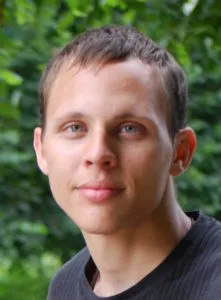In this edition of Glam Grads, The Stanford Daily met with Glenn Markov, a sixth-year Ph.D. candidate in the School of Medicine’s department of genetics who works in the research laboratory of Helen Blau, professor of microbiology and immunology. Markov earned his B.S. in biological science from Arizona State University and is now studying cell reprogramming in human fibroblast cells. He shared his interests in bioinformatics, current research, future plans and advice for aspiring researchers in biology.

The Stanford Daily (TSD): Can you tell me a little bit about yourself and your path to graduate studies at Stanford?
Glenn Markov (GM): I did biology and biochemistry at Arizona State University. I worked in two different labs, one with Dr. Kusumi who focused on lizard tail regeneration and another with Dr. Kumar who worked with analyzing human mutations that cause human disease. Both labs were very interesting experiences, but I could tell that it wasn’t a complete picture. I didn’t really have a complete understanding of the field and the subject matter was a lot deeper than what I was exposed to. Research was a perfect opportunity to explore biology in detail, so I applied to Stanford, a top research institute, for graduate studies.
TSD: What do you like most about Stanford?
GM: [Stanford] has world class research and you can always find a collaborator who’s doing something innovative and interesting. I am very interested in the biotech industry, and they have a great biotech industry here in the Bay Area. If you need help with anything, a lot of resources and innovation are really developed here. My Ph.D. project itself was launched by one of my classmates. Also there are lots of different departments that invite speakers from all over the country and all over the world, so you have a steady stream of good seminars. I’ve listened to James Watson, Rick Young and other top scientists as well as many renowned local professors at Stanford.
TSD: How did you initially become interested in biology and genetics?
GM: I’ve always been interested in the sciences. Studying biology, genomics and bioinformatics at ASU (Arizona State University) was really interesting. I didn’t really know much about the field, and it seemed really new at the time. The human genome had been sequences not long before I graduated, and it felt like it was a whole interesting field with a lot going on.
TSD: Tell us about your research.
GM: My research focuses on understanding how cells reprogram and how you can change one cell type into another. My lab uses a cell fusion model which gives a unique insight to reprogramming because the process happens quickly and synchronously. I fuse human fibroblasts and mouse embryonic stem cells, and the mouse embryonic stem cells are able to reprogram the fibroblasts and turn on embryonic stem cell genes in the fibroblast cell. In most of the cells, the genes end up turning on within two days. It’s a very rapid process and allows us to study the steps that it takes to reprogram and turn on genes that should be silent but are important to embryonic stem cell research.
TSD: What do you like most about your mentor?
GM: Helen Blau is really passionate and is constanting reinventing herself and pushing the limits of what is possible technologically. She really helps answer more and more interesting research questions that couldn’t be answered before.
TSD: What are your plans for the future?
GM: I definitely don’t exactly know, but I am very interested in industry research specifically in the startup world. I am working on the early stages of a startup. One of the biggest risk factors of many diseases is the age of the person, and there aren’t a lot of treatments working on the mechanism of aging, so that is what the startup is focused on.
TSD: What advice would you give to people aspiring to study biology or genetics?
GM: I would advise people to find a lab that they enjoy being in and a mentor that they can effectively work with. Even a little bit of lab experience helps because it is a much different experience from learning in classes. In terms of the Ph.D. project, try to get started quickly. Don’t worry too much about how it will turn out. Just go for it. You don’t necessarily have to see the big picture right away.
Please contact Kelly Yookyeong Kim at ykkelly ‘at’ gmail.com.